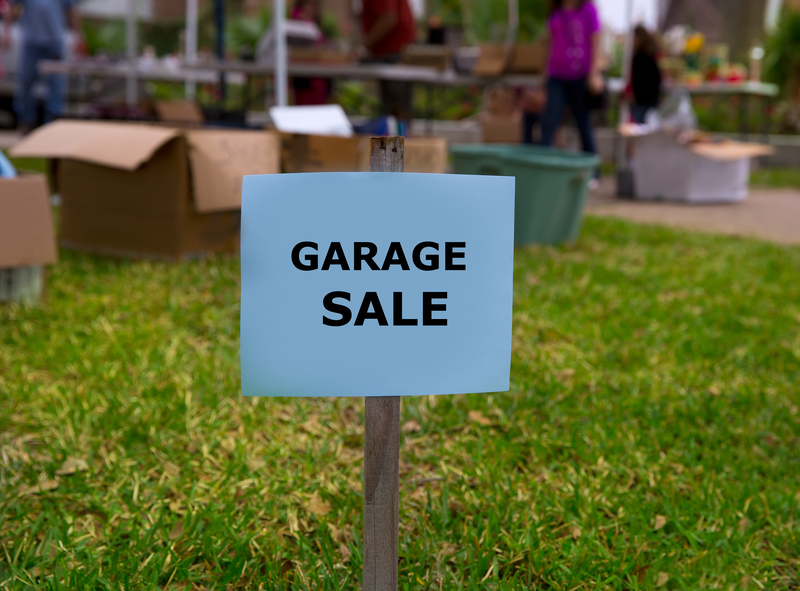Simple Steps to Achieve a Zero-Waste Household
Living sustainably has rapidly evolved into more than just a trend--it's a vital necessity for our planet's well-being. One of the most effective ways to minimize your ecological footprint is by striving for a zero-waste household. While the journey towards zero-waste might seem daunting, it's absolutely attainable with strategic planning, commitment, and incremental changes. In this comprehensive guide, we'll walk you through simple steps to achieve a zero waste home, providing actionable advice and easy lifestyle adjustments for a cleaner, greener future.
What Does "Zero-Waste" Mean?
Zero-waste is a holistic philosophy and lifestyle that aims to eliminate waste production entirely. The focus is on redesigning resource lifecycles to ensure that all products can be reused, repurposed, or composted, rather than being sent to landfills or incinerators. Achieving a true waste-free household requires more than recycling--it's about transforming habits, rethinking consumption, and making eco-conscious decisions every day.

Why Strive for a Zero-Waste Home?
Adopting a zero-waste lifestyle has a multitude of benefits for individuals, communities, and the planet. Some of the key advantages include:
- Preserving natural resources by reducing demand for raw materials.
- Decreasing pollution associated with landfills and waste incineration.
- Saving money through conscious consumption and reusable alternatives.
- Improving personal health by avoiding toxic chemicals found in various disposable products.
- Fostering a culture of sustainability and environmental responsibility for future generations.
How to Start Your Zero-Waste Journey
The path to minimal waste begins with awareness and small changes. No need for perfection; consistency and incremental progress are far more important. Here is a step-by-step approach to establishing a thriving waste-free household:
1. Perform a Waste Audit
The first and perhaps most revealing step is to evaluate your current waste output. Spend a week documenting what you throw away in each room of your house:
- Empty trash bins and note recurring items.
- Identify single-use products that could be replaced.
- Consider the types of packaging you dispose of most frequently.
This simple audit will pinpoint your primary sources of waste, forming the foundation for your upcoming changes.
2. Understand the 5 R's of Zero-Waste
The zero-waste movement revolves around five basic principles, often referred to as the 5 R's:
- Refuse: Say no to items you don't truly need, especially single-use products and freebies.
- Reduce: Minimize consumption, choosing only what is necessary and durable.
- Reuse: Opt for products that can be used multiple times or repurposed for different functions.
- Recycle: Sort waste diligently, prioritizing materials that can be efficiently recycled.
- Rot: Compost organic matter such as food scraps and yard waste.
Applying the 5 R's consistently is crucial to achieving a zero-waste lifestyle.
Simple Zero-Waste Swaps for Everyday Living
You don't have to overhaul your life overnight. Begin with practical zero-waste product alternatives that are easy to implement, affordable, and widely available.
In the Kitchen
- Swap plastic wrap for beeswax wraps
- Replace disposable sponges with compostable or reusable cloths
- Use glass containers or stainless steel lunch boxes instead of single-use plastic bags
- Buy in bulk using your own jars and reusable produce bags
- Compost food scraps instead of discarding them with regular trash
In the Bathroom
- Switch to bar soap and shampoo bars in place of bottled products
- Invest in a safety razor rather than disposable plastic razors
- Opt for bamboo toothbrushes and natural toothpaste
- Use reusable cotton rounds for makeup removal and cleansing
On the Go
- Carry reusable water bottles and coffee cups
- Bring your own shopping bags and containers when eating out or shopping
- Pack utensils and a cloth napkin for meals away from home
Effective Strategies to Reduce Household Waste
Making a zero-waste home is about more than buying eco-friendly goods. It involves rethinking routines and adopting effective strategies that promote *waste minimization*.
Plan Your Meals
Creating a meal plan is not just helpful for your schedule and budget but also vital for reducing food waste. Follow these meal planning tips:
- Shop with a list to avoid unnecessary purchases.
- Use leftovers creatively in new meals.
- Freeze surplus produce and meals to extend shelf life.
Practice Mindful Shopping
The products you purchase have a direct impact on your household waste footprint. Be intentional with your choices:
- Support local farmers' markets with minimal packaging.
- Choose high-quality, long-lasting goods over disposable options.
- Buy secondhand when possible--especially clothing, furniture, and appliances.
Set Up a Home Composting System
Composting is a simple yet powerful solution for transforming organic waste into valuable fertilizer. You can compost:
- Fruit and vegetable scraps
- Eggshells and coffee grounds
- Yard trimmings and leaves
Avoid composting meat, dairy, and oils to prevent pests and odors.
Switch to Digital Solutions
Minimize paper waste by embracing the digital age:
- Opt for electronic bills and statements.
- Use note-taking apps and digital calendars instead of notepads.
- Read magazines, books, and newspapers online.
These small actions can greatly reduce your home's paper clutter.
Building a Zero-Waste Community at Home
Achieving a zero-waste household is a collective endeavor. Involve family members, roommates, or housemates to amplify impact and foster motivation.
Educate and Encourage
- Discuss the environmental benefits of waste reduction.
- Host zero-waste challenges to keep things fun and engaging.
- Allocate responsibilities for recycling and compost bins.
*Remember, everyone plays a vital role in sustaining an eco-conscious home.*
Creative Ways to Reuse and Upcycle
Encourage creativity by transforming old, broken, or unused items into something new. Upcycling is the art of repurposing items, offering endless potential for a zero-waste lifestyle.
- Turn glass jars into vases, candle holders, or storage containers.
- Repurpose old T-shirts into cleaning rags or tote bags.
- Make planters from plastic bottles or cans.
- Use newspaper as gift wrap or shelf liners.
*Upcycling* is a fantastic way to reduce waste while expressing individuality and resourcefulness.
Track Your Progress and Celebrate Small Wins
The journey to a zero-waste household is ongoing. Celebrate milestones, whether it's reducing your weekly trash bag count or successfully composting for a month. Keep a journal or shared document to monitor improvements and identify areas for further growth. Progress, not perfection, is the true measure of a successful zero-waste lifestyle.
Common Obstacles and How to Overcome Them
Transforming your home into a waste-free haven comes with challenges, but with perseverance, each hurdle can be overcome:
- Limited local options: Shop online for zero-waste goods or team up with others to request sustainable products at local stores.
- Lack of time or motivation: Remember that even small steps matter and every decision counts.
- Resistance from others: Lead by example, share facts, and kindly encourage participation without judgment.
Over time, your zero-waste habits will inspire others and contribute to a much larger collective impact.

Top Tips for Maintaining a Sustainable, Zero-Waste Household
- Invest in quality over quantity.
- Declutter regularly, donating or selling unused items.
- Choose packaging-free or recyclable packaging whenever possible.
- Learn basic repair skills for clothing, electronics, and furniture.
- Stay informed on recycling guidelines in your community.
- Join or start a local zero-waste group for support and idea-sharing.
- Encourage local businesses to adopt sustainable practices.
Conclusion: Your Zero-Waste Household Awaits
Embracing a zero-waste household is both a rewarding and impactful commitment. It's a journey full of learning, experimentation, and community-building. By following these simple steps to achieving a zero waste home, you'll not only help reduce the strain on the environment but also create a healthier, more conscious, and efficient living space.
Start with small swaps, remain patient, and inspire others with your steadfast commitment to a cleaner, greener world. Together, every action counts in paving the way to a truly sustainable and zero-waste future.